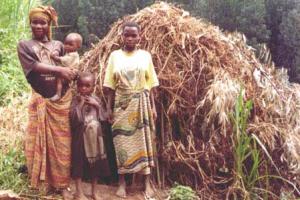I recently had the opportunity of travelling to the Indian province of West Bengal and to visit the Dhoteria, Bagora and Mayung “Forest Villages” in the districts of Darjeeling, Kurseong and Kalimpong.
To the outsider, the mountain area of the Outer Himalayas appears to be covered by dense forests, mostly composed of very large trees. However, local people know that these are not forests, but old and new plantations of mostly two species: the Japanese cedar (Cryptomeria japonica) and Teak (Tectona grandis).
India
Other information
30 September 2006
The study by the United Nations Food and Agriculture Organization (FAO) “Preliminary Review of Biotechnology in Forestry Including Genetic Modification” (ftp://ftp.fao.org/docrep/fao/008/ae574e/ae574e00.pdf), released in December 2004, summarized the state of biotechnology in forestry generally with a specific look at genetic modification of trees. In their findings they report 225 outdoor field trials of GM trees worldwide in 16 countries. Unfortunately they do not differentiate which field trials are current and which occurred in the past, painting a somewhat skewed picture.
Bulletin articles
5 June 2006
The National Forum of Forest People and Forest Workers (NFFPFW) welcomes the report submitted by the Joint Parliamentary Committee (JPC) on the draft Forest Rights Bill and is hopeful that the Central Cabinet will approve it and will send it to the Parliament. NFFPFW further acknowledges the role played by the Chairman and members of the JPC, and contribution of all other social movements, struggle groups of forest people and movements in shaping this Bill through their suggestions, and submissions before the JPC.
Bulletin articles
6 May 2006
Since India gained political independence in 1947, Protected Areas and development projects like large dams, mines, industries, roads and army cantonments displaced millions of people in the country. Planning Commission estimates suggest that 21.3 million people were displaced by development projects between 1951 and 1990 alone. Estimates of people evicted by Forest Department—to create new Protected Areas and to clear ‘forest encroachments'—are not available.
Bulletin articles
7 April 2006
When the British invaded India 250 years ago, they found the sub-continent covered with a mosaic of vegetation they did not comprehend. Tall dark trees, gnarled and knotted creepers, wild grasslands…the sheer tropical abundance of India’s forests shocked, overwhelmed them. Ultimately, forests came to signify a number of simpler issues (or things): snakes, tigers, barbarians/rebels, pests, and adventure. British colonizers/traders never neglected the mundane and practical, though, which lay beyond this ‘exotic’ and ‘orient’.
Bulletin articles
8 January 2006
As soon as the year started, a tragedy sparked off in Orissa's Jajpur district in Kalinga Nagar.
For many months, local tribals and other villagers have engaged in a bitter struggle to avoid displacement by the steel project of Tata Industries, a company with a long history of displacing people and exploiting their natural resources. An earlier attempt to start construction in Kalinga Nagar was prevented by local people in May last year.
Bulletin articles
12 October 2005
India’s forests, the foundation of the nation’s ecological security, are being lost to a plethora of commercial enterprises at an alarming rate. The latest statistics released by the Forest Survey of India shows that the country has lost over 26,000 sq. km of its dense forests during the period 2001-2003. With over 3000 species of flowering plants and about 200 species of animals of the country having been already categorized as being threatened, this massive loss of forest is surely to have added to the decimation of biodiversity.
Other information
13 September 2005
According to the most recent official estimates (Forest Survey of India, 2003 State of Forests Report), India continues to lose its forest cover. The 2003 estimates record a net minus change of nearly three million hectares of ‘dense forests’, which means serious and continued deforestation in forests with canopy density of 40 percent and above.
Bulletin articles
14 July 2005
Regarding women's indigenous knowledge, apart from a few ethnographic and anthropological studies, little consideration had been given by early androcentric-biased anthropologists, ecologists and environmentalists to the gender dimension of indigenous knowledge systems.
Other information
13 June 2005
“The worst immorality is a studied ignorance, a purposeful refusal to see or know” (Andrea Dworkin)
Bulletin articles
20 May 2005
The Scheduled Tribes (Recognition of Land Rights) Bill 2005, which seeks to recognise the rights of forest-dwelling scheduled tribes (FDSTs) over forest produce, has been pulled off the agenda for discussion by the Indian cabinet.
The Bill, drafted by the Tribal Affairs Ministry, is pending consideration before the Indian parliament, following a heated debate between tribal rights and social groups on the one hand and environmentalists on the other, over provisions in the draft bill.
Bulletin articles
20 April 2005
Despite years of controversy surrounding World Bank forestry projects in India, the Bank is pressing ahead with major plans to make the way for large loans for further forestry projects in several States. In 2005, the Bank has pilot “community forest management” (CFM) and participatory forest management (PFM) projects beginning in Madhya Pradesh and Jharkhand states. These pilot projects are intended to precede major loans for full-scale State-wide forestry projects.

